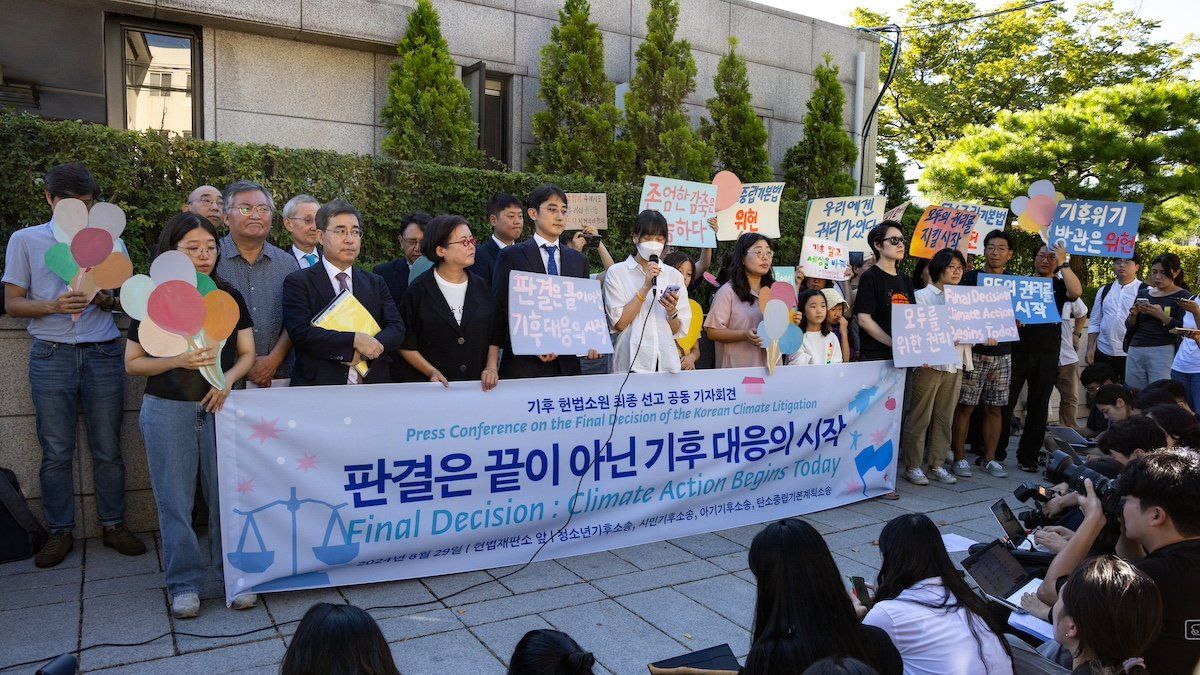South Korea’s constitutional court has ruled that the country’s climate change measures are insufficient for protecting the rights of citizens, particularly those of future generations. On Thursday, it ordered the government to go back to the drawing board to set more ambitious — and legally binding — carbon-reduction targets for 2031 and beyond.
The ruling was based on a case involving 250 plaintiffs — one-third of them children or teenagers — upset by the absence of legally binding greenhouse gas emission targets. The court agreed with them and said the lack of targets beyond 2030 shifted an undue burden onto future generations.
“Environmental litigation is becoming a global phenomenon. A key catalyst is the UN’s 2022 resolution, which established a universal right to a clean, healthy, and sustainable environment,” says Franck Gbaguidi, director of global sustainability at Eurasia Group. “It has given more power to existing climate laws and made it easier to take legal action against environmental harm without necessarily needing to prove specific harm to health, life, or property.”
This ruling is the first of its kind in Asia, but it is “expected to trigger a domino effect across Asia, where many similar cases are in the works,” says Gbaguidi. It comes on the heels of similar rulings in Germany, Switzerland, India, and Montana that governments have a constitutional responsibility to their citizens, current and future, to combat climate change.
“We’re now entering an era of intense legal scrutiny on environmental policies, making it more likely for these cases to succeed,” says Gbaguidi. “This means we’ll see more strategic and sophisticated lawsuits against governments and companies, with courtrooms becoming key battlegrounds for climate change action.”